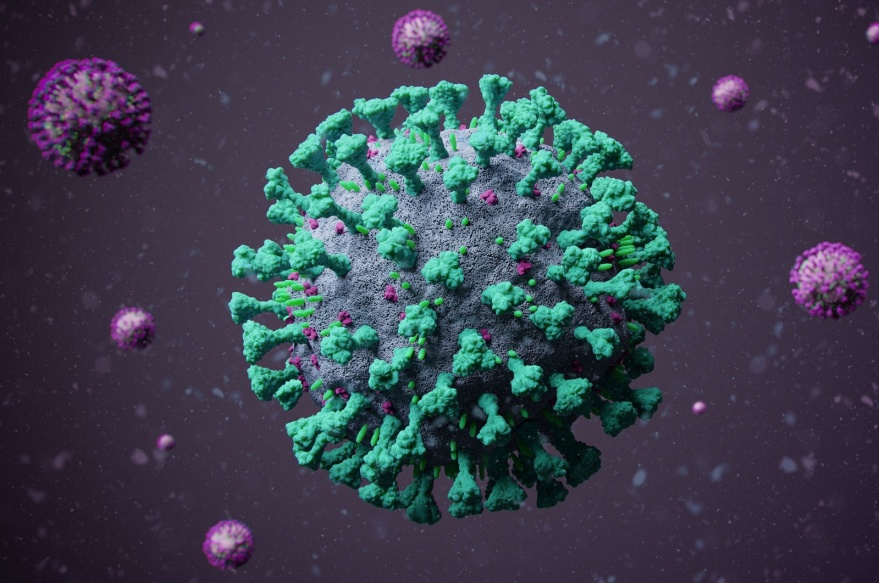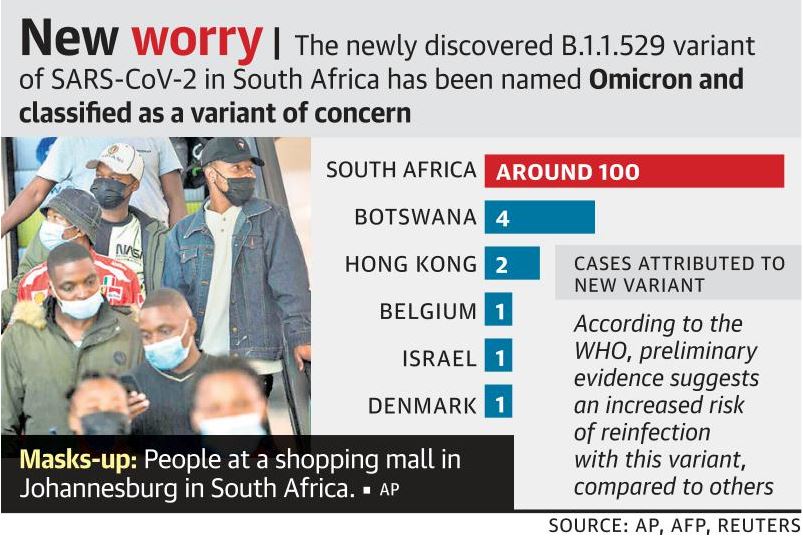OMICRON VARIANT

Copyright infringement not intended.
Context
- The World Health Organization (WHO) classified a new variant of SARS-CoV-2, currently circulating in South Africa, as a ‘variant of concern’. It also named it Omicron.
About
- The Network for Genomics Surveillance in South Africa (NGS-SA) had identified the variant.
- It had detected a group of related SARS-CoV-2 viruses, which belong to a lineage named B.1.1.529.
- Early indications are that this variant is possibly even more transmissible than the highly infectious Delta variant, and that current vaccines may be less effective against it.
- From what is known currently, B.1.1.529 has multiple spike protein mutations, and preliminary analysis suggests it is highly infectious.
- 1.529 has “very unusual constellations of mutations” — with 30 in the region that encodes the spike protein, which is responsible for the virus’s entry in human cells.

What is a Variant of Interest?
- All viruses mutate or undergo certain changes over time, helping them to spread easily, escape our vaccines, medicines and survive.
- There are several SARS-CoV-2 variants circulating globally.
- WHO places a SARS-CoV-2 variant in the VOI list if it is seen to have certain “genetic changes that are predicted or known to affect virus characteristics such as transmissibility, disease severity, immune escape, diagnostic or therapeutic escape”
- To be added to the VOI list, a variant must also be “identified to cause significant community transmission or multiple Covid-19 clusters in multiple countries”, and suggest “an emerging risk to global public health”.
‘Variants of Concern’ (VOC).
- More dangerous mutants are categorised as ‘Variants of Concern’ (VOC).
- According to the WHO, a VOI can become a VOC if it is demonstrated to be associated with an increase in transmissibility or virulence, or with a “decrease in effectiveness of public health and social measures or available diagnostics, vaccines, and therapeutics”.
Currently, four variants of the coronavirus are designated as variants of concern. They are:
- Alpha (lineage B.1.1.7, the so-called ‘UK variant’), which was first detected in the United Kingdom in September 2020, and is now present in at least 193 countries around the world;
- Beta (lineage B.1.351, the so-called ‘South Africa variant’), the first samples of which were detected in South Africa in May 2020, and which has so far been reported from 141 countries;
- Gamma (lineage P.1, the so-called ‘Brazil variant’), which was first detected in Brazil in November 2020, and which has been reported in 91 countries;
- Delta (lineage B.1.617.2), the variant that was first reported in India in October 2020 and is now present in at least 170 countries. The highly transmissible Delta variant is now the dominant strain of the virus in India, and was responsible for the devastating second wave of Covid-19 in April-May this year.
https://indianexpress.com/article/explained/covid-variant-south-africa-explained-7642199/



1.png)
